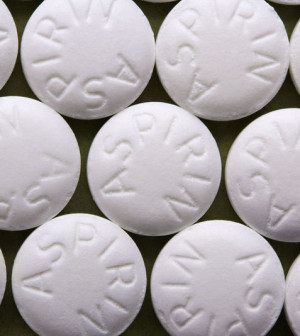- FDA Approves New Antibiotic Against UTIs
- New School Lunch Rules Target Added Sugars, Salt
- Dairy Cows Moved Across State Lines Must Now Be Tested for Bird Flu
- TikTok Riddled With Misleading Info on Health: Study
- Emulsifier Chemicals Are Everywhere in Foods. Could They Raise Diabetes Risk?
- Opioids During Pregnancy May Not Raise Psychiatric Risks for Offspring
- Could Heartburn Meds Raise Your Migraine Risk?
- Drug, Alcohol Abuse Goes Untreated in Many Ex-Prisoners
- Watchdog Group Says U.S. Food Recalls Rose Again Last Year
- Genes Could Mix With Pesticide Exposure to Raise Parkinson’s Risk
Expert Offers Tips for Preventing Holiday Migraines


The holidays can be a challenge for people who suffer migraines, which can be set off by certain foods and drinks.
“This is the season in which many people overindulge in things that can trigger attacks of migraine,” Dr. David Dodick, chair of the American Migraine Foundation, said in a news release from the foundation.
“It’s important to think through food and beverage choices, to help reduce the risk of having a migraine attack,” added Dodick, a professor of neurology at the Mayo Clinic in Scottsdale, Ariz.
The first step is to identify the foods and beverages that can trigger a migraine. You can do this by keeping a diary to track what you eat and when you have a migraine.
“Knowing your food triggers and planning in advance can increase your enjoyment of holiday activities with fewer migraine attacks,” Dodick said.
“If you don’t know whether you have food triggers, we suggest trying to eliminate specific dietary foods and beverages, such as red wine, processed meats, nuts, chocolate, aged cheese, monosodium glutamate, and gluten-containing foods, to see if they are causing migraine attacks,” he advised.
“If these attacks decrease, introducing these items back one at a time can identify the culprit(s), should they exist. Not everyone with migraine has food triggers, but for those with these triggers, avoiding them can often mean fewer migraine attacks,” Dodick said.
He also suggested limiting your consumption of processed foods, sodium, sugar, and caffeinated and carbonated drinks, and not eating in the hours before you go to bed.
Skipping or missing meals at their normal time is a more common trigger of migraine than any particular food, so you need to eat regularly throughout the day, Dodick said.
More information
The American Academy of Family Physicians has more about migraine.
Source: HealthDay
Copyright © 2024 HealthDay. All rights reserved.










